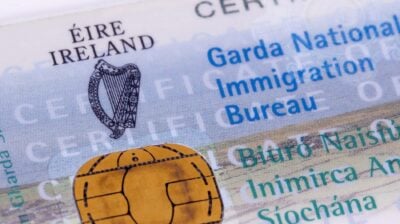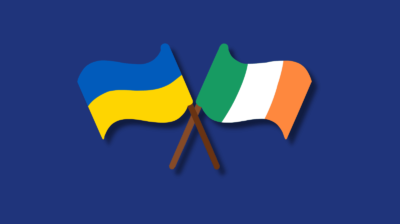Registering your immigration status as a young person in Ireland
Learn more about your rights as a migrant or refugee in Ireland


This factsheet is an extract from the publication Know Your Rights: The Rights of Children and Young People published by the Children’s Rights Alliance. It is reproduced here with their kind permission. Know Your Rights is a public information project designed to inform everyone, in plain language, of the rights and entitlements children have in Ireland and where to go when they are not respected.
If you or your parents have come to Ireland from another country, you may be known as migrants. Migrant children or children of migrants have different rights and entitlements that depend on their own citizenship, parent’s citizenship, or immigration status.
What are the immigration rules in Ireland?
The Government of Ireland has set out rules about who can come here to:
- live
- work
- study
- visit as a tourist
- apply for asylum
- start a business
These are known as immigration rules.
If you were born in Ireland but your parents are not Irish citizens or have no legal right to reside (live) in Ireland, different immigration rules may apply to you.
What is ‘immigration status’?
Immigration status refers to the rules that apply to a person living in Ireland who is not an Irish citizen. Examples of status include:
- an EU citizen
- an asylum seeker
- a person who holds an immigration permission with an Irish residence permit
An EU citizen can move freely throughout the EU.
Why is it important to know my status?
It is important to know your status as this tells you what rights you have while living in Ireland. Each type of status has different rights and conditions. For example, your status can impact:
- how long you can stay in the country
- your social welfare entitlements
- access to third level education
- access to social housing
- access to healthcare
- your right to work
When do I have to register with immigration authorities?
If you are aged 15 or under you do not need to register
Children aged 15 years or younger do not need to register but they must do so as soon as they turn 16. Until you turn 16 the state assumes your immigration status is the same as your parents’ status. There are plans to change this to require all children under the age of 16 to register with the authorities, but this has not been introduced yet.
If you are 16 or over, you must register
If you are 16 years old or more and are not an EU citizen or a citizen of Iceland, Liechtenstein, Norway or Switzerland, you must register that you are in Ireland with the Immigration Authorities.
How do I register with the immigration authorities?
If you live outside Dublin, you should contact your nearest Garda Immigration Officer and normally you will have to attend a local registration office. You can find a list of these on the INIS website.
If you live in Dublin, you should make an appointment online on the INIS Website to register. They will give you an appointment that you must attend at Burgh Quay in Dublin. They will give you a registration certificate that is known as an Irish Residence permit. You must carry this with you at all times. Your residence permit will tell you what kind of status you have.
If you are under 18 at the time of registration, you do not have to pay the registration fee. You can find more information about the registration process in the Immigrant Council of Ireland Guide or on the Department of Justice and Equality website.
If you are over the age of 16 and have been living in Ireland without registering you can seek information and advice about how best to register from the Immigrant Council of Ireland.
If your parents do not have permission to live in Ireland, you should seek advice from a specialist immigration solicitor, or the Immigrant Council of Ireland, before your 16th birthday. They will advise you about possible applications to regularise your immigration status.
What do I do if I am not sure what my status is, or I do not have status?
If you are unsure about your status or if you do not have status it is very important that you get information and advice about what to do from a legal professional. You can contact the Immigrant Council of Ireland Information line on 01-674 0200 or call the Children’s Rights Alliance Information line on 01-902 0494.
What do I do if I am undocumented?
If you are undocumented (do not have status) it is very important that you get information and advice about what to do from a legal professional. You can contact the Migrants Rights Centre Ireland or the Children’s Rights Alliance.
Need more information?
We are here to answer your questions and talk through your options. Our online chat service is for 16 to 25 year olds and is available Monday to Friday, 4pm to 8pm. Chat to us now about your situation.
- Chat now to a trained Youth Information Officer
- Or leave us a message and we will email you back






